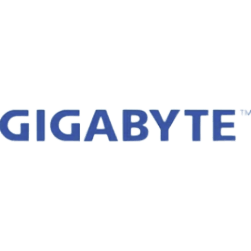
What's the best choice GIGABYTE AORUS Radeon RX 570 4G or AMD Radeon RX 7800 XT? Which graphics card is faster?
We have prepared a comparison to help you choose the best graphics card. Compare their specifications and benchmarks.
GIGABYTE AORUS Radeon RX 570 4G has a maximum frequency of 1.178 GHz+ 1 %. Memory size 4 GB. Memory type GDDR5. Released in Q4/2017.
AMD Radeon RX 7800 XT has a maximum frequency of 1.800 GHz. Memory size 16 GB. Memory type GDDR6. Released in 2023.
 Reasons to consider
Reasons to consider Place in the overall ranking
(based on several benchmarks)
Common positions GIGABYTE AORUS Radeon RX 570 4G GPU in popular benchmarks, for comparison with other models.
 Reasons to consider
Reasons to consider Higher clock speed
Around 35% better clock speed
More memory
75% more memory
Common positions AMD Radeon RX 7800 XT GPU in popular benchmarks, for comparison with other models.
No data GIGABYTE AORUS Radeon RX 570 4G
GIGABYTE AORUS Radeon RX 570 4G

Comparison of basic technical data of graphics cards GIGABYTE AORUS Radeon RX 570 4G and AMD Radeon RX 7800 XT, chip, information processing units.
Comparison of the amount of memory on board graphics cards. The more the better.
Let's compare the memory frequency of graphics cards GIGABYTE AORUS Radeon RX 570 4G and AMD Radeon RX 7800 XT. The higher the better.
Connectors, the number of thermal watts emitted in normal mode and at overclocking.
Types and sizes of coolers for graphics card cooling system GIGABYTE AORUS Radeon RX 570 4G and AMD Radeon RX 7800 XT.
Connectivity and connections.
Technical data that is used to its full potential in computer games.
Built-in support for video and image compression standards.
The difference in size, weight and slot of the compared devices
Comparison of interfaces and release dates for GPU AMD Radeon RX 7800 XT and GIGABYTE AORUS Radeon RX 570 4G.
Based on the results of several popular benchmarks, you can more accurately estimate the performance difference between GIGABYTE AORUS Radeon RX 570 4G and AMD Radeon RX 7800 XT.
Compare synthetic benchmarks and choose the best graphics card for you!